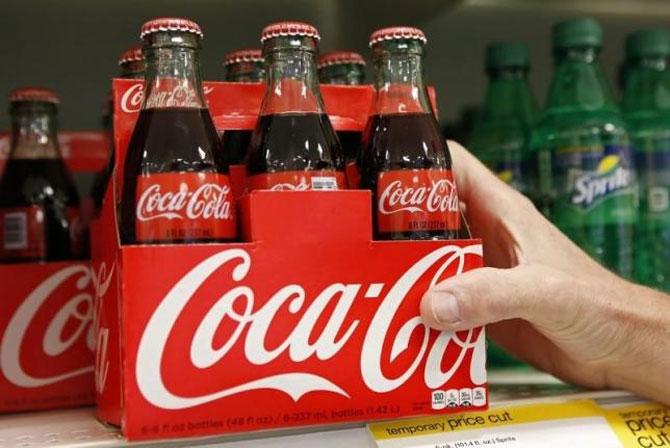
Coca-Cola’s India unit is putting in place a plan to make the country one of the top five markets for the world’s largest beverage maker by 2020.
India had last year overtaken Germany to become the sixth-largest market by volume sales for Coca-Cola. The company now wants to make it the fifth largest — a plan it had articulated in 2012 while committing itself to investing $5 billion (Rs 30,000 crore) in the country.
Venkatesh Kini, Coca-Cola’s president for India and South West Asia, told Business Standard in an exclusive interaction that the investment plan was on course and that it was tweaking its India strategy in line with market trends.
“Premiumisation is one such consumer trend that we are seeing,” Kini said. “The economic growth in the country and the creation of a wealthy, urban class of globe-trotting consumers has created demand for products that are truly international. An example is Coke Zero, which we launched in response to consumer demand for a zero-calorie drink. We were getting Facebook likes for Coke Zero out of India long before it was brought here.”
Fuze Tea, another of Coca-Cola’s billion-dollar global brands, combines tea and fruit flavours. It was launched in India recently in response to the consumer trend of premiumisation. The India unit of the US beverage maker is also carving out a separate channel of distribution for its premium products which is expected to grow in the coming years.
The nearly Rs 15,000-crore (Rs 150 billion) India unit of Coca-Cola derives the bulk of its revenue from its core business of selling cola drinks. But growth in the Rs 13,000-14,000-crore (Rs 130 -140 billion) soft drink market in India has slowed in the past few quarters. Thanks to this slowdown, Coca-Cola recently took its first production cut in a decade.
While analysts say Coca-Cola’s premiumisation drive is intended to help the company look at categories beyond colas, Kini doesn’t think growth in fizzy drinks has completely dried.
“This summer was bad because of unseasonal rains in the first half. Challenges on the rural demand front exist on account of the deficient monsoon in some parts of the country, but the potential for growth still exists. If we continue to invest in expanding distribution and improving penetration with new packs and price points, there is still growth that we can derive,” he says.
Kini’s assessment is based on the penetration of packaged beverages in India. Per-capita consumption of soft drinks in India, for instance, is around three litres, compared with 90 litres in the US and 15-16 litres in countries like Pakistan, market experts say.
To drive penetration of its products, Coca-Cola is also tapping into the digitisation wave in the country.
The steps include everything from reaching out to consumers directly through an online platform called Coke2home, where the company delivers products directly after receiving orders online from shoppers, through tie-ups with e-commerce platforms.
Besides, the company is also equipping its sales force with hand-held devices connected with the cloud, giving them instant access to outlets, their sales history, etc. Orders taken from outlets are directly uploaded to the cloud, Kini says, with the warehouse team immediately getting into action to deliver the orders.
Digitisation, he says, will also be extended to areas like smart coolers, intended not only to be energy-efficient but also to provide quick and handy chilling solutions.
Interestingly, much of these developments come at a time when Coca-Cola is putting a new reporting structure in place that is intended to help managers and executives in India to engage with their counterparts directly across emerging markets in the world. The idea, Kini says, is to allow easy transfer of best practices, ideas and technology, rather than being stuck in hierarchical structures that slow down decision-making.







 © 2025
© 2025